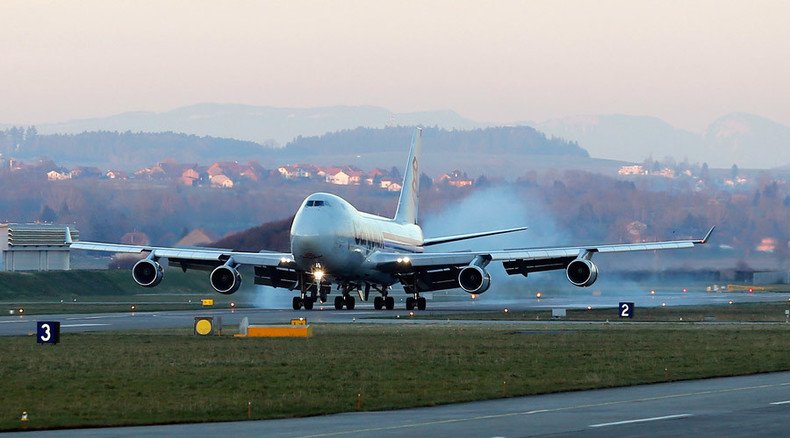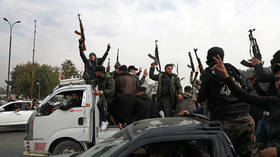Jet generators: Boeing inventor suggests harvesting aircraft noise for energy

Noise pollution is a major issue for airports worldwide, but an inventor at Boeing believes the roar from aircraft engines can be harnessed to produce electricity.
The idea outlined by engineer Chin Toh in a patent application is to line runways with sound collectors, which would transform sound energy into airflow, which would in turn rotate turbines to generate electricity.
The application does not estimate the amount of electricity that can be recycled from this acoustic energy. But this may be the weak point of the idea. Sound has a relatively low energy density. For the energy needed to heat a 250ml cup of coffee from 25C to 75C – a half-minute job for a microwave – amounts to what human screaming produces in about a year-and-a-half.
Coal ash discovered to have high levels of radiation http://t.co/R8vgJCfbdUpic.twitter.com/tUfBQ2z2fR
— RT America (@RT_America) September 3, 2015Engine noise is certainly louder and thus has higher energy than human voice. Engine roar levels are around 140 decibels compared to 80 decibels for a yell.
“It’s more efficient to collect and store sunlight using solar panels than to harvest energy from sound,”says David Cohen-Tanugi, vice-president of the MIT Energy Club.
So the cost of building sound traps and turbines in airports may be too high for the idea to be economically feasible. Airports may just have to stick to muffling the noise to reduce pollution.












